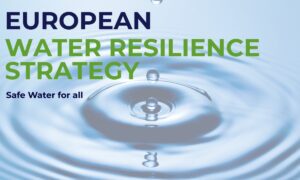The European Parliament is one of the three key institutions of the European Union, alongside the European Commission and the Council of the EU, and the only one amongst them that consists of directly elected representatives.
Readers of EuChemS Magazine may be familiar with certain Parliamentary Committees, Members of the European Parliament (MEPs), and how they relate EuChemS and scientific policymaking. Topics relevant to chemistry and to research in general are often discussed at the parliament’s committees on Industry, Research and Energy (ITRE) and Environment, Public Health and Food Safety (ENVI). These committees comment on and review proposals by the Commission, which are ultimately voted on by the entirety of the Parliament. The Parliament also organises structured dialogues, where they advise and ask burning questions from representatives of EU agencies, such as EFSA and ECHA. Last but not least, EuChemS also works together with MEPs who are involved in the EU’s chemicals policy. MEP Maria Spyraki co-chairing the EuChemS Workshop on Phosphorus and on Circular Economy, MEP Simona Bonafè addressing the participants on the EuChemS workshop on Lithium, or former MEP Catherine Stihler participating in a pairing scheme with EuChemS Past-President David Cole Hamilton can serve as examples of this.
Therefore, your will – alongside deciding on European-level political developments and beyond – also influence whom EuChemS will work with to advance the cause of the European chemistry community in policymaking. Information on how and where to vote can be found here. Before voting, in case you are interested in the details, we invite you to read EuChemS’ handy guide describing how the European Parliament operates.



